- Home
- Lynne Reid Banks
The Backward Shadow
The Backward Shadow Read online
Contents
Cover
About the Book
About the Author
Also by Lynne Reid Banks
Dedication
Title Page
Chapter 1
Chapter 2
Chapter 3
Chapter 4
Chapter 5
Chapter 6
Chapter 7
Chapter 8
Chapter 9
Chapter 10
Chapter 11
Chapter 12
Chapter 13
Chapter 14
Chapter 15
Chapter 16
Chapter 17
Chapter 18
Chapter 19
Chapter 20
Chapter 21
Copyright
About the Book
Jane has had her baby and is living along with him in a country cottage. Her idyllic time there is soon complicated by the arrival of Toby, the love of her life, and her friend Dorothy. The two women start up a shop in the village, and it is their changing fortunes and feelings for the men on whom so much of their lives are staked which form the core of this funny and vividly told novel.
About the Author
Lynne Reid Banks was born in London in 1929 and was evacuated to the Canadian prairies during the war. On her return to England she studied at RADA and was an actress in the early 1950s; later she became one of the first two women reporters on British television. Her first book, The L-Shaped Room, was published in 1960 and was an instant and lasting best-seller. Lynne Reid Banks is also a best-selling author of books for children and young adults. Her classic children’s novel, The Indian in the Cupboard, has sold over ten million copies worldwide. She lives in London.
ALSO BY LYNNE REID BANKS
The L-Shaped Room
Two Is Lonely
Fair Exchange
Dark Quartet
For Pat, who helped so much,
and my menfolk, who didn’t.
LYNNE REID BANKS
The Backward
Shadow
Chapter 1
I DON’T know exactly when the restlessness began. I think it must have been round about September. That would fit in with my normal pattern, wherein autumn is always the vigorous, renaissance time. Besides, the lovely novelty of David was beginning to wear off. Not that he was any the less interesting at four months than he had been in the weeks after his early birth; he grew more fascinating daily. But very young babies do have a way of just lying there for a lot of the time, leaving any but the most besotted mother (and I was reasonably besotted when he was awake and reacting) with a lot of thinking time on her hands.
During the first few months of David’s life, I was content just to enjoy him, and life in Addy’s cottage. It was such a marvellous place, full of nooks and beams and angles and little irrelevant flights of stairs, strange-shaped rooms (though none L-shaped) with uneven floors, low ceilings and wide fireplaces. I spent hours and days happily examining it in all its enchanting detail and marvelling at my ownership of it. Strangely, there was very little sadness left over from Addy. She must have been very happy in it, and even as her intentionally lonely death approached, her own natural strength and quietness of spirit must have kept her from destroying the peaceful atmosphere of her home with an overspill of disquiet or fear.
She was still in evidence everywhere—in her books, her arrangements of furniture (always for convenience and comfort, without regard to conventional taste), in her garden, and, it sometimes seemed to me when I was sitting quietly alone, in some less tangible way. Being far too down-to-earth a person to give much credence to ‘that sort of thing’ generally, I hesitated to confirm this to myself, but in the end I came around irresistibly to believing that there was something of Addy left to keep me company. How else to explain why I was never lonely? I am far too gregarious to take kindly to living alone in the depths of the country.
‘Aren’t you nervous-like, alone here at nights?’ Mrs. Griffiths, my bi-weekly charlady from the village, would often ask. ‘Miles from anywhere—wouldn’t do me, I don’t mind admitting. Ever so brave you are, or silly, one or the other.’ Her voice dropped. ‘You hear about Mrs. Stubbs?’
I had, many times, heard about Mrs. Stubbs, who had been strangled (or stabbed, or beaten—it varied) to death one dark night by a demented chalk-pit worker. Only as it happened in 1928, and as nothing, not even the War, had since disturbed the tranquillity of this remote Surrey backwater, I didn’t let the poor lady’s fate disturb me overmuch—or Mrs. G’s ghoulish retelling of it.
Of course I was never alone for more than a few days at a time. Father liked to come down at week-ends, and it was surprising how many other people could manage to get hold of cars and make the journey to the country when they knew that a pretty period cottage equipped with all mod cons and feather beds, an outstandingly attractive baby with an intriguing ‘past’, and, if I do say it, some rather splendid meals, were waiting at the other end. Most of them nevertheless were full of complaints about how difficult it was to find the way, and how their cars had suffered from the last half-mile of rutted track. They never failed to ask how I could bear to be stuck such miles away from civilisation, or to relate gruesome Mrs.-Stubbs-like tales, the way women delight regaling their pregnant friends with the horrid details of their own deliveries. Furthermore my relations—aunts and uncles on my father’s side—actually had the nerve to tut over David’s head and mutter about what a shame it was, all right while he was a baby of course, they don’t need their fathers then, but what about later? … All this, while I was laying on a huge great meal for them, and in point of fact hadn’t invited them in the first place.
However, I shut my ears to these and similar Cassandral prophesies regarding the future. The policy of getting through one day at a time—or even one minute, when things were really bad—had worked admirably while David was pending, and while he was being born. It seemed fairly fruitless to fret myself to a frazzle now about how I would cope five years ahead. Besides, worry wouldn’t do my milk any good. Or so I told myself as an excuse for being happy.
He really was a most wonderful baby. He had one fundamental good quality on which all the rest were built—he didn’t seem to resemble his father in any particular. He didn’t resemble me either, that I could detect, which also struck me as no bad thing. He was not one of these big flabby babies, but small and neat, with very dark hair and beautifully marked eyebrows, which even the doctor said was most unusual. He was remarkably self-contained, almost from birth, seldom crying except politely to call my attention to the fact that he was wet or hungry, or that he wanted a cuddle. He never made unreasonable demands on me, such as that I should stick strictly to a schedule, something I would have found a great bore as I’ve always loathed routine. If we were out in the woods, which we often were during the long dappled summer days, and I was doing something interesting like making a moss garden, or reading, or watching a spider, he was content to lie on his rug and stare upwards at the leaf-filtered sky until I was ready to feed him.
It was lovely to sit under the trees in the long grass with the breeze unfamiliarly touching my secret flesh through which the warm milk was drawn into David’s strong little body. Nobody ever disturbed us. The birds sang and the sun shone warm and God-like on our faces. Half-naked and close to the earth, we sat together, the scents of the woods mingling with the smell of fresh milk, my function and David’s clearly and simply interlocking like the function of lovers, each to solve the need of the other. Once as we sat like that the sun went in and the sky darkened, and soon a summer rain was pattering on us through the leaves. As the first cool drops fell on my breast and on the baby’s little upturned face, he drew awa
y and sneezed, and my impulse was to cover us both up and go home. But after a puzzled moment, he seemed to accustom himself to this new prickly feeling. He made anxious goldfish faces until I restored the nipple to him, whereupon he closed his eyes again in his customary bliss and went on sucking, unaware of the rain which tapped his skin and ran down my breast and into his mouth with the milk. I sheltered him in my arms and stayed where I was until he’d finished, and then carried him slowly home as usual; he laughed briefly and then slept, with the rain still gently falling on him.
So he grew, and I seemed to grow as well. At moments I felt I was growing strong and quiet inside, like Addy. I was sure all this peace, this closeness to nature, was the way to wisdom and self-knowledge. At other times I knew, with equal certainty, that it was the way to complacent cabbage-hood. Here there were no problems, no decisions, nothing to face up to—just day after day of tranquillity and pleasure. It was not real life at all, just as my stay here with Addy during my pregnancy had not been real life, just time out of time, a resting space, a period of gathering-together for the plunge back into the complex of living, facing, feeling, deciding.
Here, it was too easy to believe that nothing was more natural than to bring a child into the world, that being married or not married was the merest formality which did not in any way affect the rightness of furthering nature’s cycle. My visitors from ‘outside’, with their reminders of the world’s codes, could not really touch me here. I was armed against their strictures by the strong, primitive inner conviction, reinforced each time I looked at David’s healthy body, that I had done well. It was what I had felt making love to my Toby. The word ‘immoral’ had no meaning whatever in the face of the essential goodness of it.
Among the innumerable books on Addy’s shelves was one by Ernest Hemingway in which I found these words:
‘What is moral is what you feel good after. What is immoral is what you feel bad after.’
Emerging from the dazzle of finding something which so simply and exactly expressed what I felt, I thought: Nothing that parents, or the Church, or Society can say can basically affect this fundamental truth. One can even tell oneself that one is wicked, sinful, immoral, or whatever; if one feels good, one doesn’t believe a word of it. Yet there must be women who sleep night after night with their husbands in perfect rectitude and feel so guilty and misused afterwards that the mere fact that Society smiles on their state cannot convince them that they are anything but the most depraved and miserable of sinners.
On the same basis, no amount of rationalisation can save you from a sense of sin if you have done something immoral, by Hemingway’s definition. I suffered cruelly from it after Terry and I had conceived David so stupidly and lovelessly. I didn’t suffer from it after Toby, despite everything, despite the circumstances—it felt right, and I felt right about David now. The trouble with this concept was, it didn’t give you any real guide to living. There was no way of knowing in advance. I had thought I loved Terry; I had no idea of loving Toby. I’d known Terry for seven years (on and off); I’d known Toby a few weeks. Why was it ‘immoral’ with Terry and ‘moral’ with Toby? Why was the conception of David immoral, and yet his birth moral? Could the whole business of morality be based on nothing more stable and predictable than hindsight? Were there no workable rules, only one’s fundamental instincts to go by—and at that, instincts which were only wise after the event?
All these sincere, and sometimes comforting, reflections did not cure my periodic unease. I knew the place protected me, as the L-shaped room in which I had awaited David’s birth had shielded me, as much from my own pusillanimousness as from the world’s censure. I knew that, however much I might arm myself with self-confidence here, it was all likely to crumble into enforced guilt and ruin when the full pressure of public opinion hit me amidships on my return to ‘civilisation’.
The obvious answer to that, of course, was—don’t return at all. Surely the sensible thing was to stay here, tucked away in my own secure little niche with David for years and years until it was time for him to go to school, by which time anything might have happened. The way moral standards were turning themselves inside out there might well have been a sort of Wolfenden Committee on Bastardy which would end by recommending that illegitimacy should become a privileged condition … only illegitimate sons could inherit … ‘Bastards of the world, unite!’ … there’d be a tremendous campaign to win public sympathy, all the great bastards of past and present would be enlisted to support the New Doctrine, namely that you couldn’t be really intelligent, creative, artistic, etc. etc., unless you were born on the wrong side of the blanket … When I caught myself indulging in these ludicrous fantasies I always pulled up short, telling myself it was essential to be serious, to appreciate the gravity of what I’d done, and that it showed an immaturity bordering on infantilism to play games with myself like this instead of brooding on my responsibilities. I would laugh the other side of my face, I told myself severely, when the time came for David to understand his situation.
But that time was not yet. The time now was for him to lie in my arms and drink my milk and listen to me talking and singing to him while growing strong and brown in the sun. The time was for me to nurture the illusion that at long last, after 28 years, I was learning how to live alone.
So the future threw back only a pale shadow. It wasn’t that which got under my skin, prickling and irritating like hunger as the summer began to end. I didn’t know what it was—a nagging that was more than conscience, a need that was not merely for the city and for real life. It was a sort of superstition, really, left over perhaps from my theatrical days, that nothing good lasts, that it must all be paid for, and that the longer it goes on the farther the luck-pendulum will swing back in the other direction eventually. It was better, this superstition said, to keep a balance by pushing the pendulum back before it went too far, to turn your face voluntarily away from ease and pleasure, for fear the gods would force you to it later, more fiercely the longer you had let yourself relax.
But I waited. I waited for a sign. ‘Let’s get you safely into the fifth month,’ Addy had said while I was under her wing in January. I said the same thing now to David, with a trace of Addy’s own acerbity, as if it were David who was nagging at me to leave this haven. But really I was waiting—as I’ve always waited—for something outside to push me, to give me my direction.
I got my signs in October. They came, as they always seem to, in a cluster—three in one day.
It was one of the first real autumn days, with that faint crisp smoky smell in the air, the smell of things dying down which, perversely, always makes the sap rise in me. I pushed open the mullioned window over the sink which commanded the front path, and noticed that I could see the postman’s breath, very faintly; he left footprints in the damp grass as he left the path to pass my letters through to me.
‘More visitors announcin’ ’emselves?’ he asked as I took the letters with one hand and passed him his accustomed cuppa with the other.
‘Shouldn’t think so. Summer’s over; the country’s not such fun in the winter.’
‘Yup, in for a cold snap all right. How’s the nipper?’
‘Thriving, thank you.’
He nodded to me, drained the tea, and tramped away between the hedges. The sun drifted wanly down, not even strong enough to make the dew sparkle. The dahlias and big yellow daisies were hanging their still-splendid heads, as if the strength had gone out of them overnight.
I sat on a high stool by the sink and examined my letters. There were three, or rather, two and a postcard. The postcard was typewritten; it said: ‘This is a tip-off. The Michelin Man will call at your establishment after closing-time tonight, disguised as a weary traveller. Give of your best, and you, too, may have a crossed knife and fork in the next Guide.’
It was unsigned. The style was familiar, but elusive. Dottie? Possibly. She’d just bought a car … I decided to lay on a sumptuous feast just in case, and keep D
avid up later than usual. She hadn’t seen her godchild since the christening.
The first letter had a businesslike look about it which made me distrust it. But the other had the name of my bank on the envelope, which was considerably more ominous. I’d been living very cheaply, but a capital of £123 10s. doesn’t last forever unless you’re actually dead, and that was all I’d amassed at the time of David’s birth and my retirement to Addy’s cottage. Addy’s other assets, also left to me, had consisted of a few Greek Government Bonds bought impulsively years ago after a holiday there and now down to £14 in the hundred, and the rights to a book she’d written which I had edited and typed. Not a penny of actual cash—her annuity had died with her. Father would help me if I asked him, of course, but I didn’t want to ask him. And I didn’t want Terry’s help, either, though he’d begged and begged me to let him give me an allowance. I felt a bit mean for refusing; I could see it would make his conscience infinitely easier if I let him pay something … but that would give him rights, would sanction his paternity, and I shrank from that. David was mine. I’d earned him all by myself—or at least, with no help from Terry—and I wasn’t going to let anyone horn in on him now if I could help it. I saw my fierce independence for the stubborn, unlovely thing it was, and didn’t flatter myself; but I could not deny it.
I turned from the two discouraging red figures at the bottom of my bank statement to the other typewritten envelope. It had been forwarded from Fulham. I tore it open.
Dear Miss Graham,
Sorry I’ve been so long getting in touch with you about your aunt’s book, but I wanted to wait till I had something good and definite to tell you. Now I have. As I suspected, the English publishers, always inclined to be timorous, have all shaken their money-wise old heads (some with genuine regret, I think). So I tried across the water, and halleluia! one of the New York firms has come up with an offer. It’s a very good list, and your aunt can congratulate herself on landing in it with her first book. They’re very enthusiastic, as you’ll see by the enclosed copy of their letter. Once it comes out there, I think it’ll undoubtedly find a place here too.

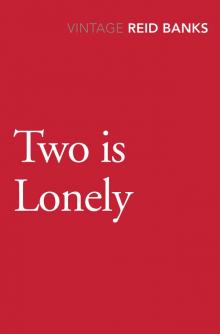 Two Is Lonely
Two Is Lonely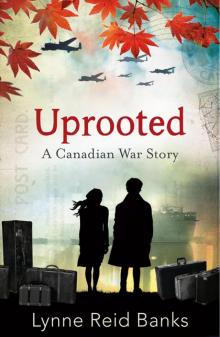 Uprooted - a Canadian War Story
Uprooted - a Canadian War Story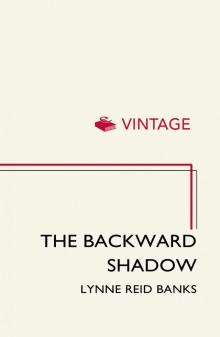 The Backward Shadow
The Backward Shadow Harry the Poisonous Centipede: A Story to Make You Squirm
Harry the Poisonous Centipede: A Story to Make You Squirm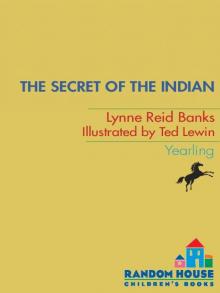 The Secret of the Indian (The Indian in the Cupboard)
The Secret of the Indian (The Indian in the Cupboard)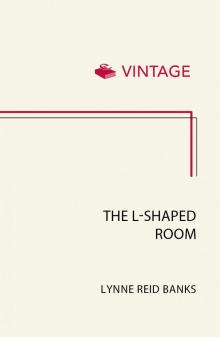 The L-Shaped Room
The L-Shaped Room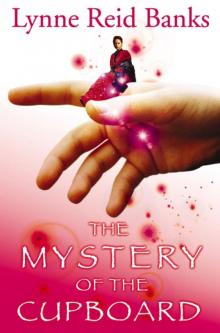 The Mystery of the Cupboard
The Mystery of the Cupboard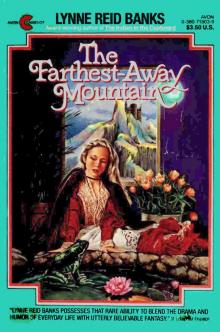 The Farthest-Away Mountain
The Farthest-Away Mountain Harry the Poisonous Centipede Goes to Sea
Harry the Poisonous Centipede Goes to Sea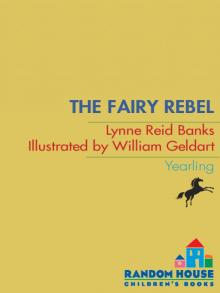 The Fairy Rebel
The Fairy Rebel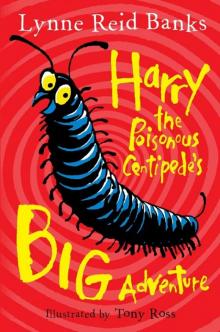 Harry the Poisonous Centipede's Big Adventure: Another Story to Make You Squirm
Harry the Poisonous Centipede's Big Adventure: Another Story to Make You Squirm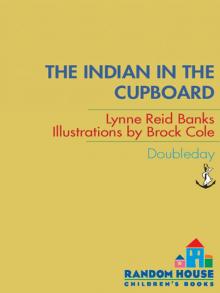 The Indian in the Cupboard
The Indian in the Cupboard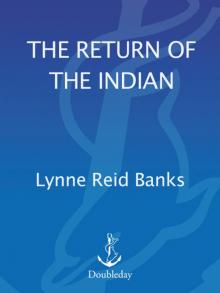 The Return of the Indian
The Return of the Indian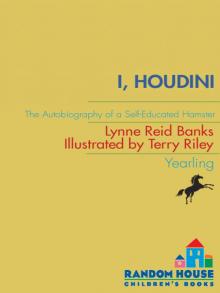 I, Houdini
I, Houdini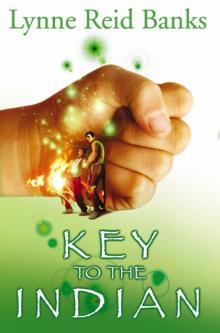 The Key to the Indian
The Key to the Indian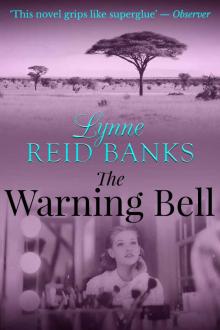 The Warning Bell
The Warning Bell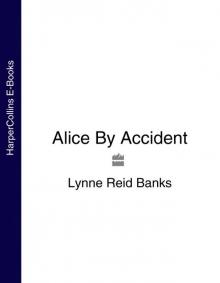 Alice by Accident
Alice by Accident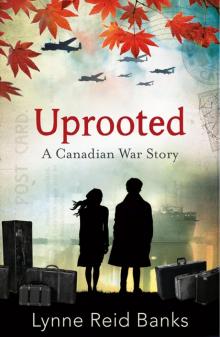 Uprooted
Uprooted Writing On the Wall
Writing On the Wall The Adventures of King Midas (Red Storybook)
The Adventures of King Midas (Red Storybook)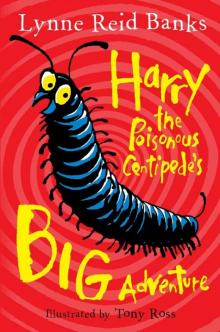 Harry the Poisonous Centipede's Big Adventure
Harry the Poisonous Centipede's Big Adventure Harry the Poisonous Centipede
Harry the Poisonous Centipede The Dungeon
The Dungeon Bad Cat, Good Cat
Bad Cat, Good Cat The Indian in the Cupboard (Essential Modern Classics, Book 1)
The Indian in the Cupboard (Essential Modern Classics, Book 1)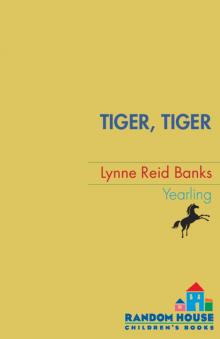 Tiger, Tiger
Tiger, Tiger